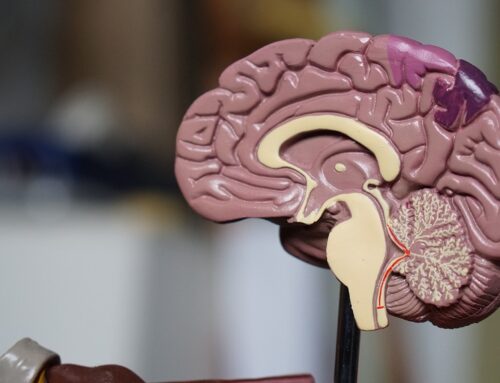Pituitary tumors, while often benign, can significantly impact health due to their location at the base of the brain and their role in hormone regulation. Understanding the symptoms associated with these tumors is crucial for early detection and effective pituitary tumors treatment. Dr. Robert Louis, an esteemed neurosurgeon in Newport Beach and Orange County, emphasizes the importance of recognizing these signs to facilitate timely medical intervention. Here, we explore ten common symptoms of pituitary tumors that you should not overlook.
1. Unexplained Headaches
One of the most common symptoms experienced by individuals with pituitary tumors is persistent headaches. These headaches may vary in intensity and frequency, often described as dull or throbbing. As the tumor grows, it can exert pressure on surrounding tissues, leading to discomfort. If you find that your headaches are becoming more frequent or severe without an apparent cause, it’s essential to seek medical advice.
2. Vision Problems
Pituitary tumors treatment can affect vision due to their proximity to the optic nerves. Patients may experience blurred vision, double vision, or even peripheral vision loss. These visual disturbances are often a result of the tumor pressing on the optic chiasm, where the optic nerves cross. If you notice changes in your vision, it’s crucial to consult a healthcare professional promptly.
3. Hormonal Imbalances
The pituitary gland is often referred to as the “master gland” because it regulates various hormones in the body. A tumor can disrupt this balance, leading to hormonal imbalances. Symptoms may include irregular menstrual cycles in women, decreased libido, or infertility. In men, hormonal changes may manifest as erectile dysfunction or reduced testosterone levels. Recognizing these hormonal shifts can be vital in diagnosing pituitary tumors.
4. Unexplained Weight Changes
Significant weight gain or loss without dietary changes or increased physical activity can signal hormonal issues related to pituitary tumors. For example, Cushing’s disease, caused by excess cortisol production, can lead to rapid weight gain, particularly around the abdomen and face. Conversely, a deficiency in growth hormone may result in unintentional weight loss. Monitoring these changes is essential for early diagnosis and treatment.
5. Fatigue and Weakness
Chronic fatigue and unexplained weakness are common complaints among individuals with pituitary tumors. This fatigue can stem from hormonal imbalances affecting energy levels, sleep patterns, and overall well-being. If you find yourself feeling persistently tired despite adequate rest, it may be time to discuss your symptoms with a healthcare provider.
6. Mood Swings and Psychological Changes
Pituitary tumors can also influence emotional health. Patients may experience mood swings, anxiety, or depression, often related to hormonal changes or the stress of dealing with a health condition. These psychological effects can be profound, impacting daily life and relationships. If you notice significant shifts in your mood or mental health, seeking help is crucial.
7. Increased Thirst and Urination
Another symptom associated with pituitary tumors is polydipsia (increased thirst) and polyuria (increased urination). This may occur due to the disruption of hormones that regulate water balance in the body, such as antidiuretic hormone (ADH). If you find yourself drinking more fluids and urinating frequently, discussing these symptoms with a doctor is important.
8. Changes in Skin Appearance
Some patients with pituitary tumors may notice changes in their skin, which can be attributed to hormonal imbalances. For instance, Cushing’s disease can cause skin to become thin and fragile, leading to easy bruising or the development of purple stretch marks. Any significant changes in your skin’s texture or appearance should not be ignored.
9. Sleep Disturbances
Sleep disturbances, including insomnia or changes in sleep patterns, are often reported by individuals with pituitary tumors. These disruptions can result from hormonal fluctuations affecting sleep quality and regulation. If you’re experiencing persistent sleep issues, it’s vital to address these concerns with a healthcare professional to rule out any underlying conditions.
10. Neck and Back Pain
While not as widely recognized, persistent neck or back pain can also be a symptom of a pituitary tumor. This discomfort may be due to pressure exerted by the tumor on surrounding structures in the brain or spinal cord. If you experience ongoing pain in these areas, particularly if accompanied by other symptoms, it’s essential to seek medical evaluation.
Recognizing these ten common symptoms of pituitary tumors is crucial for early detection and effective pituitary tumors treatment. If you experience any of these signs, it is advisable to consult with a healthcare professional who specializes in neurosurgery and endocrinology. Dr. Robert Louis and his team at Brain Spine MD are dedicated to providing comprehensive care, utilizing advanced diagnostic techniques and treatment options tailored to each patient’s unique needs. Early intervention can make a significant difference in outcomes and quality of life, making awareness of these symptoms an essential aspect of health management.
Frequently Asked Questions:
What is a pituitary tumor?
A pituitary tumor is an abnormal growth in the pituitary gland, which is located at the base of the brain. While many pituitary tumors are benign, they can still cause significant health problems due to their location and impact on hormone regulation.
Can a pituitary tumor cause headaches?
Yes, one of the most common symptoms of a pituitary tumor is persistent headaches. These headaches are often described as dull or throbbing and can increase in frequency or intensity as the tumor grows.
How can a pituitary tumor affect my vision?
Pituitary tumors can press on the optic nerves, leading to visual disturbances such as blurred vision, double vision, or loss of peripheral vision. This is a critical symptom that requires immediate medical attention.
What hormonal changes should I watch for with a pituitary tumor?
Pituitary tumors can disrupt hormone production, leading to symptoms like irregular menstrual cycles, infertility, decreased libido, erectile dysfunction, and changes in testosterone levels. These hormonal imbalances are common signs of pituitary tumors.
Why am I experiencing unexplained weight changes?
Pituitary tumors can cause weight fluctuations due to hormonal imbalances. Conditions like Cushing’s disease can lead to rapid weight gain, while a growth hormone deficiency may cause weight loss. If these changes occur without dietary or lifestyle causes, consult your healthcare provider.
What causes fatigue and weakness in pituitary tumor patients?
Chronic fatigue and weakness are often caused by hormonal imbalances that affect energy levels and sleep patterns. Persistent tiredness, despite adequate rest, should be discussed with a doctor.
Can a pituitary tumor cause mood swings or psychological changes?
Yes, hormonal disruptions caused by a pituitary tumor can lead to mood swings, anxiety, depression, and other psychological changes. These effects are not uncommon and can significantly impact daily life.
What does increased thirst and urination mean?
Polydipsia (increased thirst) and polyuria (increased urination) are symptoms of pituitary tumors caused by hormonal imbalances affecting water balance regulation. If you experience excessive thirst and frequent urination, it may be related to a pituitary tumor.
Can a pituitary tumor change my skin’s appearance?
Yes, changes in skin texture and appearance, such as thinning, bruising, or purple stretch marks, can be linked to hormonal changes caused by pituitary tumors, particularly in conditions like Cushing’s disease.
How do pituitary tumors affect sleep?
Pituitary tumors can cause sleep disturbances, including insomnia or altered sleep patterns. Hormonal fluctuations affecting the body’s sleep regulation can lead to persistent sleep issues.
Is neck and back pain related to pituitary tumors?
Though less common, persistent neck or back pain can be a symptom of a pituitary tumor. The tumor may exert pressure on surrounding structures in the brain or spinal cord, causing discomfort in these areas.
How can I get treatment for a pituitary tumor?
If you experience any of these symptoms, it’s important to consult a healthcare provider who specializes in neurosurgery and endocrinology. Early detection and treatment can significantly improve outcomes. Dr. Robert Louis and his team at Brain Spine MD offer advanced diagnostic techniques and treatment options for pituitary tumors.
Are pituitary tumors always cancerous?
No, most pituitary tumors are benign (non-cancerous). However, even benign tumors can cause significant symptoms by pressing on nearby structures or disrupting hormone production.


















